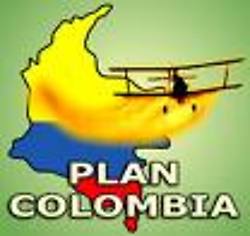
Celebrating the valuable cooperation we have received from the U.S. is one thing, but to applaud 15 years of a failed public policy such as the Plan Colombia is the best way to guarantee another 15 years. But this is not a question of a single person being in charge – three U.S. presidents have come and gone in that time, all of them dissimilar in their policies, two (very democratic) Democrats and one ultra-Republican, and he stayed on, despite the start of the war on terror and an unprecedented economic crisis that took hold during that time. Here, we’ve had three presidents who have all been more alike than different.
The legitimacy of the plan has become more important an issue than its results, as if it were there to remind us who our allies are and which fights we should be engaging in. But what’s the truth? Despite its failure, the parties involved defend it and are celebrating its 15th year, because giving up on the plan would not only disregard the significant gains in cooperation, but would also be an admission of the immense political cost of not continuing the war on drugs.
My generation has seen that this undertaking is impossible. We’ve known about this truth even since before the start of the plan, and we can’t forget that Nixon, in a dramatic speech in 1971, did us the favor of announcing the war on drugs to the rest of the world. Some 45 years, millions of lives lost, and billions of dollars later, we can only conclude that a drug-free world is a moralist utopia, or is even perhaps the desire to protect a hugely lucrative business only if it’s illegal.
The war on drugs is a malignant tumor and there’s no better profile of this situation than our own. Because while there is consensus among social scientists as to the well-known fact that drug trafficking is as much the engine as the fuel of our war, the devastating effects of the fight against drugs have still not yet been calculated. In the 15 years of the plan, cocaine production has dropped by only 20 percent, despite the fact that we still spray our farms with cancer (glyphosate). We have also tried to substitute cocaine with legal crops. Although this was politically well intentioned, it wasn’t enough, because illegal planting will always be more lucrative than legal planting, and so farmers have had to live in hiding or move to protect themselves.
There has been no study to assess the damage done. Recently, in an interview with President Obama, the writer David Simon, creator of the legendary series “The Wire,” delivered a damning phrase that sums up the whole issue: “What drugs have not destroyed, the war on them has.” But at the funeral of the respected boss, his following appears. When we stop drug trafficking in one country, a neighboring country becomes an alternative route. Only in Colombia do six new synthetic drugs appear each day. But if there’s something that history has proven, it’s that we are still ignoring the fact that a legal substance is easier to control than an illegal substance.
That is why the bilateral celebrations and all the media fuss accompanying them are difficult to understand. Of course, it is an opportunity to guarantee U.S. support for peace, and that is significant. Still, the plan needs a funeral to bury the war on drugs rather a birthday celebration. Investing in the plan was worse than investing in InterBolsa,* which was investigated for embezzlement, as was the plan regarding whether “false positives,” among other atrocities, had taken place.** If only the new Peace Colombia plan announced by President Obama had taken these important resources to the regions where the state has never been, allowing them to become fertile ground for war.
The signing of the agreement with FARC*** will be a historic moment, but it will not bring about peace; this will only come about when war loses all meaning. While drug trafficking is forced underground, violence will be a certainty in this invincible multi-billion dollar market.
*Editor’s note: InterBolsa was the largest Colombian securities broker and proprietary trader that operated until November 2012. The Colombian government ordered its closure due to a default on debts to the local banking system.
**Translator’s note: “False positives” refers to the killing of civilians and dressing them in guerrilla uniforms by the Colombian military to increase body counts against guerrilla forces — supposedly incentivized by Uribe’s performance-based rewards. See “Colombia: Peace and Stability in the Post-Conflict Era,” p. 14.
***Editor’s note: FARC stands for the Revolutionary Armed Forces of Colombia. It is a guerrilla movement originating in 1964, comprising an army of Marxist-Leninists.

Leave a Reply
You must be logged in to post a comment.